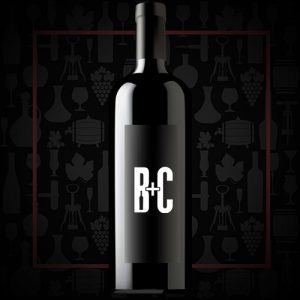Cellar Profile
The Rheinhessen suffered from over a century of (mis)use for sheer bulk production. Glorious, old vine vineyards sitting on steep, calcareous outcrops were largely forgotten in favour of high yielding sites lower down the hills. In recent years, with the movement to craft better quality wines, the Rheinhessen has a had a series of rising stars (particularly Klaus Peter Keller) creating sublime bone dry Rieslings that have achieved cult status. One of Keller’s protégés and neighbours, young Katharina Wechsler, took over her family winery in 2012 and has quickly become an ascending star in the region. She sources from “Grand Cru” level vineyards Kirchspiel and Morstein (used by Keller for his top bottlings), as well as her family’s monopole vineyard site, Benn, to make nervy, complex, age-worthy wines using biodynamic practices, spontaneous ferments, minimal intervention and eschewing most fining and filtration. She also makes a series of “Natural”, funky wines with extended skin contact. These world class wines are stunningly affordable.
Region
Germany’s largest wine region, Rheinhessen was historically known for mainly producing large amounts of bulk wine destined for the export market. That began to change gradually beginning in the 1980s, when growers began to focus on lower yields, drier styles and overall higher quality wines. Today, the region is home to the majority of Germany’s organic/biodynamic viticulture, with a great number of young and energetic producers eschewing the past and leading the future. Unlike other German wine regions, there are significant plantings of many grapes, though Riesling plays a role here as well, to be sure. You will find plenty of Muller-Thurgau, Dornfelder, Silvaner and Pinots Gris, Noir and Blanc throughout. The climate is relatively mild, protected by countless hills and forests and moderated on the east and west border by the Nahe and Rhine rivers, respectively. Soil types vary, though the majority are a mix of loess and loam with limestone deposits mixed with gravel.
Vineyard
Sourced from single vineyards in Westhofen (Benn and Aulerde), where grapevines thrive in clayey marl soils and limestone deposits. There are layers of limestone meandering through the substrate, channeling water and ensuring the plants have enough to drink even in the hottest parts of summer. The smallest vineyard in Westhofen, Benn is a monopole that has been in the Wechsler family for generations.
Varieties
Pinot Blanc (Weisserburgunder) is the white grape mutation of Pinot Noir. It is found mostly in Germany and Northern Italy, where wines are refreshing, peachy and dry. Sometimes intensely aromatic, Pinot Blanc can display notes of white florals and stone fruit.
Winemaking
Hand-harvested fruit is picked at optimal ripeness. Rheinhessen’s low pH limestone soils assure there is acid balance. The berries are hand-sorted and de-stemmed before being gently pressed into stainless steel for a long, cool ferment. The wine will spend at least two months on its fine lees in tank, before being bottled, unfined and unfiltered.
Tasting Notes
Fragrances of acacia blossoms, stone fruits (particularly apricot) and tropical citrus. On the palate, this is fleshier than many other Pinot Blancs/Weissburgunder, with some leesy depth and weight and stony minerality. The acids are quite lively, but interwoven into this medium-bodied food wine. Chill lightly and serve with pasta in a cream sauce, white fish with a lemon caper beurre blanc or or roast pork with apples.

 info@buyersandcellars.ca
www.buyersandcellars.ca
info@buyersandcellars.ca
www.buyersandcellars.ca